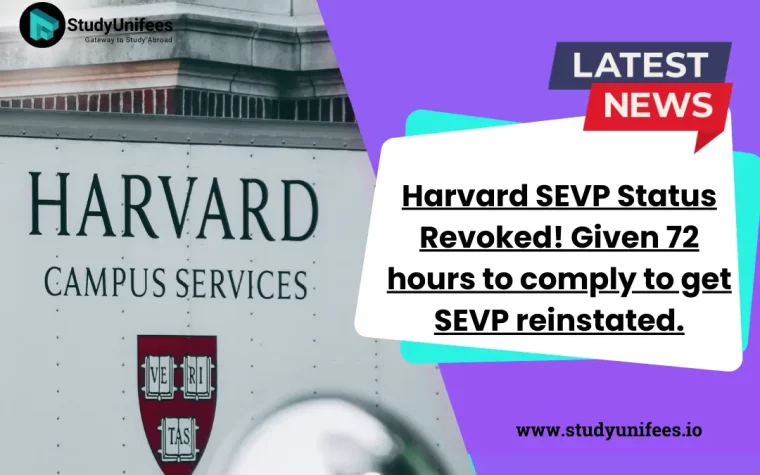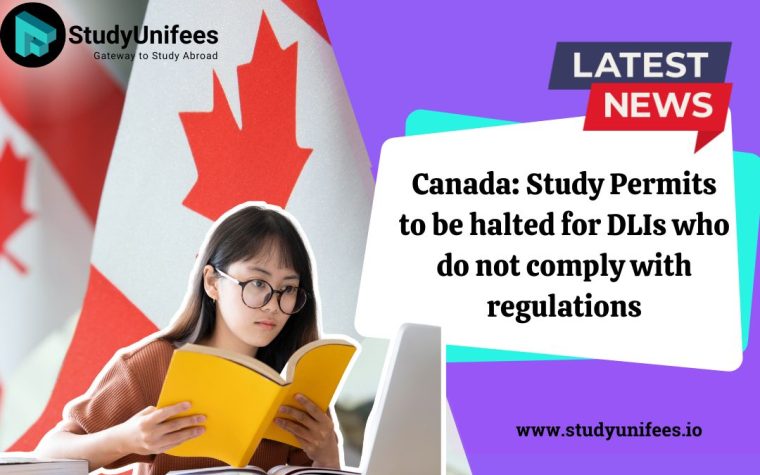Harvard SEVP Status Revoked! Given 72 Hours to Comply to Get SEVP Reinstated
Trump Administration Revokes SEVP Authorization for Harvard
The Trump administration has taken a dramatic step against Harvard University, revoking its authorization to enroll international students, thereby intensifying an already heated clash with the nation’s oldest university.
Homeland Security Secretary Kristi Noem declared via X (formerly Twitter) that Harvard’s certification under the Student and Exchange Visitor Program (SEVP) had been rescinded due to the university’s “failure to adhere to the law.”
“Let this serve as a warning to all universities and academic institutions across the country,” she wrote on Thursday.
In response, Harvard swiftly condemned the action, calling it “unlawful.”
“We are fully committed to maintaining Harvard’s ability to host our international students and scholars, who hail from more than 140 countries and enrich the University – and this nation – immeasurably,” the university stated.
“We are working quickly to provide guidance and support to members of our community. This retaliatory action threatens serious harm to the Harvard community and our country, and undermines Harvard’s academic and research mission.”
Thousands of International Students at Risk
This move jeopardizes the futures of thousands of international students. According to the university, over 6,700 non-U.S. students were enrolled last year, accounting for more than a quarter of the student body.
The announcement triggered alarm on campus, with many students now uncertain about their legal status and future in the U.S.
Student Reactions from Campus
Sarah Davis, Australian Graduate Student
In an interview with BBC Newshour:
“We’re seeing a lot of confusion on this… The news has come only five days before a lot of us are due to graduate the university, and this obviously is going to have a lot of very uncertain implications for whether we’re able to stay on in the United States afterwards and keep working here.”
Davis, also president of the Australia and New Zealand Caucus at the Harvard Kennedy School, added:
“We’re all just sitting back and waiting to see whether or not we get communications about what the next steps are from the university.”
Leo Gerdén, Swedish Undergraduate
Reflecting on his impending graduation:
“International students are being used as poker chips in a battle between the White House and Harvard… It’s incredibly dehumanising.”
Tensions Between Harvard and the Trump Administration
This conflict is the culmination of months of rising tensions. The Trump administration has:
-
Initiated investigations into several U.S. universities, including Columbia University
-
Extracted various concessions
-
Faced resistance from Harvard, which earlier this year announced its intent to sue the administration
Harvard took this legal step after receiving a set of onerous demands, which the White House later claimed were sent in error. The demands included:
-
Changes to admissions, hiring, and curriculum policies
-
Measures aimed at addressing antisemitism
-
Threats of revoking tax-exempt status
-
Halting billions in federal funding
Harvard insisted it had already implemented several measures to combat antisemitism and accused the administration of trying to influence academic governance.
Department of Homeland Security Escalates Action
The situation escalated when the Department of Homeland Security (DHS) demanded:
-
Extensive records related to international students
-
Warning of severe consequences for non-compliance
That warning turned into action Thursday when Secretary Noem officially terminated Harvard’s SEVP access for the 2025–2026 academic year.
Impact on Visa Holders
This means:
-
Students on F-1 and J-1 visas must transfer to maintain legal residency in the U.S.
72-Hour Compliance Deadline
In a letter issued to Harvard, the administration gave the university 72 hours to comply with several conditions to potentially regain its SEVP status, including:
-
Submission of disciplinary records for all international students from the past five years
-
Provision of electronic, video, or audio evidence of any illegal or violent acts involving these students
Noem reiterated:
“Let this serve as a warning to all universities and academic institutions across the country.”
Legal Pushback and Uncertain Future
This is not the administration’s first attempt to limit the presence of international students. Policies introduced in recent years have led to:
-
Uncertainty
-
Legal battles
-
Targeting of students for past legal issues or political activism
On the same day Noem issued her order, a federal judge in California temporarily blocked the administration from stripping legal protections from international students while related lawsuits are underway. Source: Reuters
“We came here because of what America stands for: freedom of speech, academic freedom, a vibrant intellectual community,” said Gerdén. “And now Trump is threatening all those values.”
“Without the international students, Harvard is simply not Harvard anymore,” he added.
Related Posts on Our Website:



